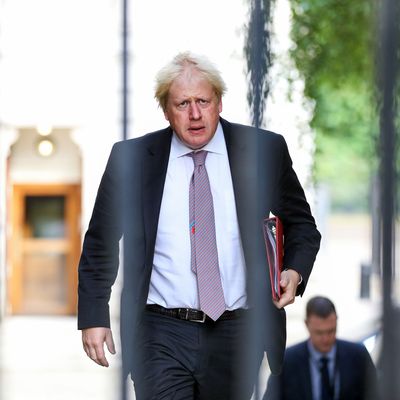
U.K. Foreign Secretary Boris Johnson, one of the most prominent Brexit advocates in British government, announced his resignation on Monday, signaling a chaotic new phase in the nation’s already messy process of withdrawing from the European Union.
Johnson is the second major Brexiteer to resign in two days, following Brexit Secretary David Davis, who turned in his papers on Sunday.
Their departures come on the heels of a pivotal meeting held by Prime Minister Theresa May last week at Chequers, an estate outside of London. There, May laid out her vision for the conditions by which the U.K. would withdraw from the European Union — the question that has dominated British politics since voters decided to leave the bloc in a 2016 referendum.
May came out decisively in favor of a “soft Brexit,” a divorce that would keep the U.K. subject to many of the agreements and contracts that govern the E.U., including a single customs union and a single market for goods.
That vision was far from the “hard Brexit” favored by Johnson, Davis, and others in May’s cabinet. And while it first seemed that May had managed to keep the most committed Euroskeptics in line, it is now clear that she faces a serious revolt in her ranks that may lead to a leadership challenge to May, or possibly even another general election, which would be the U.K’s third in five years.
Johnson, who has cut a flamboyant figure in British politics for decades, served as one of the loudest — and most misleading — voices advocating for Brexit before the referendum. After the vote, he famously said that his position on Brexit negotiations amounted to: “I am pro having my cake and pro eating it.”
Over two long years, he and the British public have discovered just how untenable that vision was. But apparently, he’s still sticking to his hard-line vision tightly enough to make himself a political martyr.






























